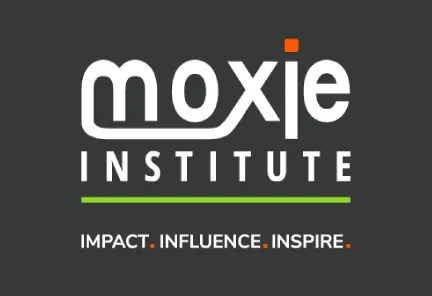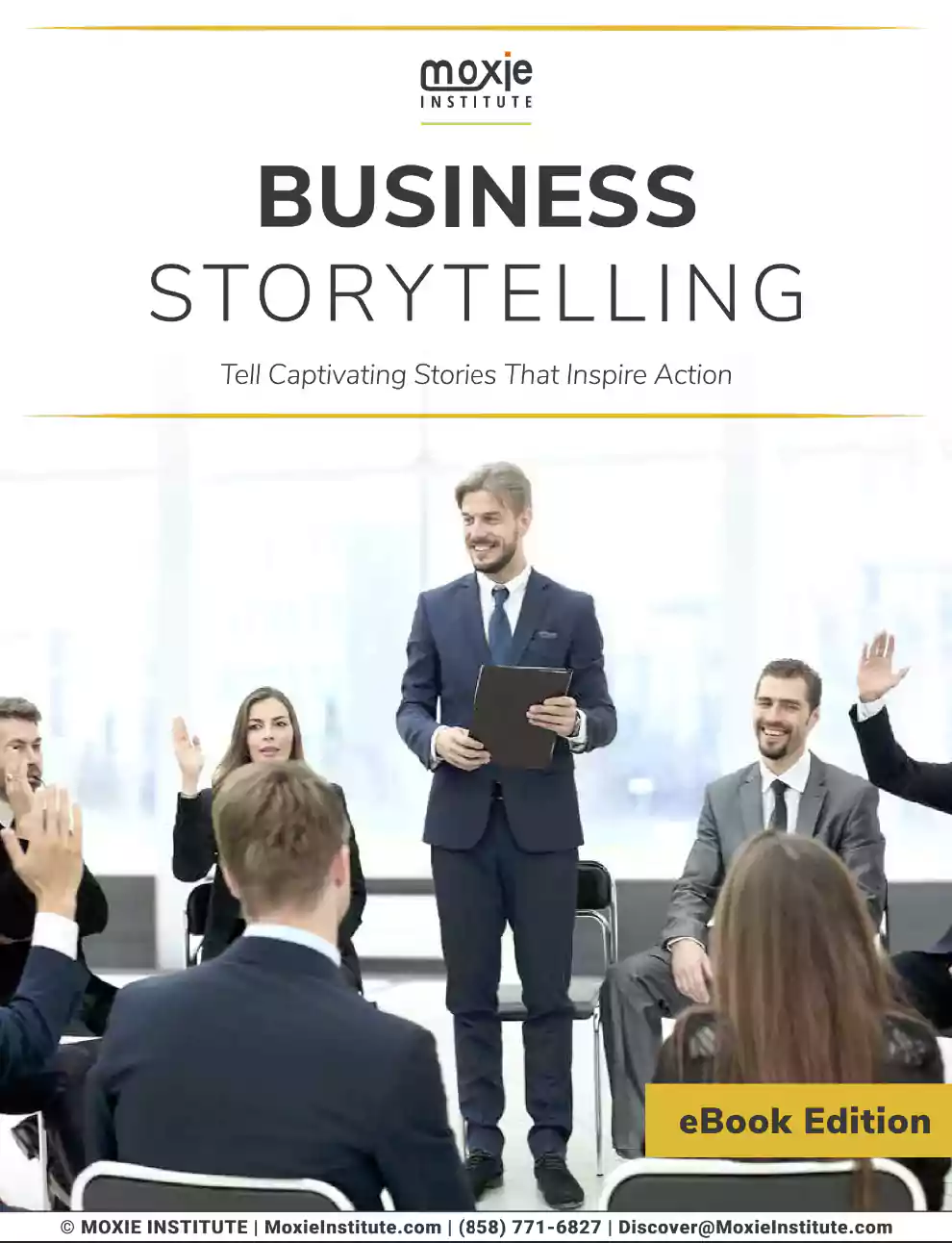AS PUBLIC SPEAKING COACHES, WE WILL SHARE AN IMPORTANT PRESENTATION AND BUSINESS TIP WITH YOU (HINT: THIS IS HOW TO LEVEL UP.)
Every single pitch is a story—whether you are trying to convince someone to consider a new belief, to invest in your product, or even that your ideas are worthwhile–there’s always an arc to what you are saying.
And every story needs a good story-teller: someone who can translate dry facts or statistics into a memorable and compelling narrative.
In fact, Google’s Chief Economist, Dr. Hal R.Varian, said in 2009 that with all of the free data readily available, “the complimentary scarce factor is the ability to understand that data and extract value from it.”
That’s where you, a communicator extraordinaire, come in.
“maybe stories are just data with a soul.”
Brené Brown, a professor and social researcher famous for her TED Talk on the power of vulnerability and several bestselling novels, suggested that “maybe stories are just data with a soul.” To make that data digestible—to humanize it—a translator is necessary. You can be that translator by finding the story in your data and statistics.
Every story has an underlying message or theme, and your story is no different.
Your message should be your company or endeavor’s purpose. To get an audience behind your cause, you need to convince them that your cause is meaningful.
A good story will show your listeners that your data is worthwhile, but a great story will make them feel that it is imperative. And they may even retell it, spreading your message without you needing to spend even more valuable face time.
This is because stories engage and excite. Stories are meant to be shared, retold, spun into immortality.
In fact, Robert McKee suggests that “Storytelling is the most powerful way to put ideas into the world today.”
To ensure your story is effective and leaves an indelible impression, here are some tips for crafting an inspiring talk using story-telling techniques:
GIVE YOUR STORY STRUCTURE.
Stories have the potential to take listeners on a journey that will lead them to an insight or realization—ideally, that your message is something that they need to pay attention to or immediately implement.
Organizing a story’s beginning, middle, and end into a natural and logical progression is critical if you want your speech to be understandable and memorable.
A well-thought out and carefully constructed story establishes you as an authority on your topic. You can see the big picture. This is why outlining and proper preparation are imperative!
And here’s a cool tip on organizing your speech: You can break up the story and tell portions of it in different parts of your talk in order to add suspense.
CREATE CHARACTER VARIETY
Having a great cast of characters will make your story memorable. Have you ever read a book that left you thinking about the characters long after you read the last word on the page? Creating endearing characters that your audience can relate to and connect with has a remarkable, lasting impact.
You don’t need to have a degree in writing or a background as a public speaking coach to make this work – all you need is your imagination.
Your protagonist should be someone the audience can get behind. Why are they rooting for you? Remember that your antagonist doesn’t have to be a specific person. An idea or challenge to overcome works just as well. This ties into the context of your story: why should they identify with the main character and his or her struggle?
Tyler Dewitt demonstrates how to tell a story that makes unlikely characters (a virus and a bacterium) interesting. In fact, this science teacher tells a horror story! If you have ever wondered how you can possibly make the data in a spreadsheet or any other notoriously dry subject come to life, check out Dewitt’s TED talk “Hey Science Teachers – Make it Fun.”
KNOW YOUR AUDIENCE
In public speaking we coach our clients on the importance of knowing each audience well. Just as some tales aren’t appropriate for your grandmother, certain stories are made for certain audiences.
We always recommend doing research before each talk you give, making sure you understand even the most subtle nuances. What is important to this audience? What have they been going through as a group? Even considering what season it is can be helpful.
If your audience will be unfamiliar with the more technical aspects of your field, try practicing in front of people who are unacquainted with your topic to make sure your story is accessible to everyone. And be sure to…
KEEP IT SIMPLE
Telling a story means boiling complex ideas down into a format that everyone can understand and relate to. Don’t use jargon the audience won’t understand. Even if you are sharing with specialists who are peers, we like to say, “If your grandma won’t understand it, don’t use it.”
This gives the listener’s brain a break so they can switch into story mode and enjoy the tale you weave and the adventure that ensues. Believe it or not, this actually makes it easier for the brain to remember your words!
Is there a concept you need to break down to simplify for your target audience to understand? How can you help them better engage to enjoy your story?
WHERE’S THE CONTEXT?
Give your story context. How is it applicable to your audience? Discuss the pertinent points and how they benefit the people in the room. Why is it important NOW? Situate your story in the timeline of your topic and invoke not just the past, but also the future.
DITCH THE CLICHÉS
Make your story original and fresh. No one likes the same clichéd examples. They just don’t resonate as well as something genuine and fresh.
Try a new angle or perspective on an old problem. Bring your unique perspective to your story to keep it enduring and interesting.
Think back to all of the truly engaging stories you’ve heard over the years. Maybe there’s a particular TED Talk that resonates with you. Study the story-telling techniques that public speaker coached or employed and try them yourself. You may notice that some of these storytellers utilize the above tips.
Geniality is important for the success of any story. Click here to read about Speaking From the Heart. Keep your talks authentic!
MAKE IT MEANINGFUL
Be sure you are not just throwing in a story just because we told you to, however. It is imperative that your story has a direct connection to the point you are trying to make.
Remember, what you want to be memorable is your overarching message, not simply a story about your dog – unless, of course, the story about your dog helps the audience feel emotionally connected to your brand or the message you are sharing. Otherwise, they’ll see you and say, “that’s the guy who told a funny story about his dog,” instead of, “I am still thinking about that person’s message and how I can integrate his recommendations into my own life!” (Which would you prefer?)
TAKE IT FURTHER
Not only is storytelling important for speeches, but you can also consider using this technique as a key component in building your brand. Keep in mind that storytelling can help you tap into the emotions of your customers, allowing them to connect with your brand and your message on a deeper level.
How can you incorporate stories into your pitches, talks, presentations, or even your brand’s identity?
Want to own the room with your extraordinary presence? Check out How to Command the Room: A Public Speaking Coach Spills the Secrets.
Got a question for us? As professional public speaking coaches and speech writing experts, we are here for you and excited to share our wealth of knowledge. Please feel free to comment below to ask.
Fia and Gregg Fasbinder
CEO and President
www.MoxieInstitute.com
hello@moxieinstitute.com
(858) 771-6827









